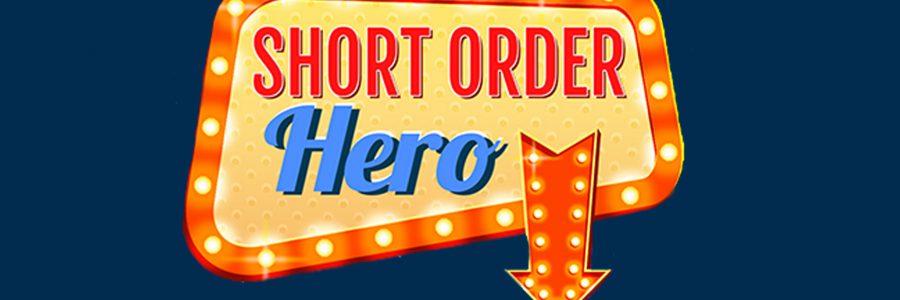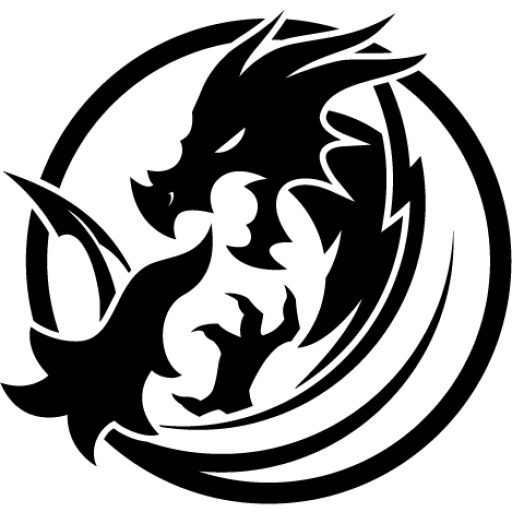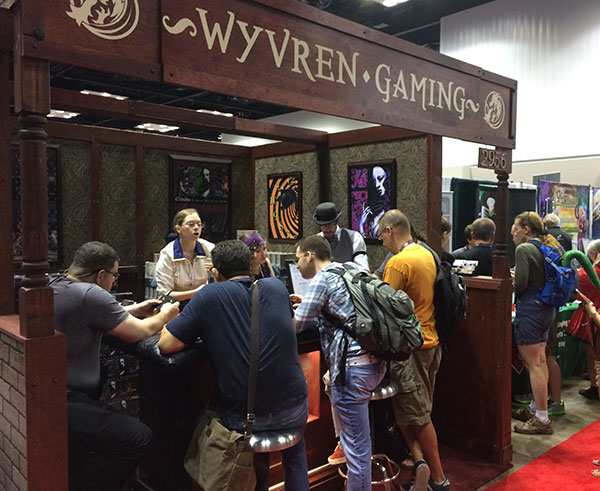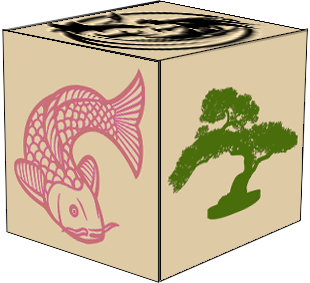by Melissa Carmean
The anguish of my stroll to the sanitarium during the fall breeze of that chilled day was beset by children who were out in the streets on their bicycles, either riding them or walking alongside them. They clutched the leaves fallen from the trees, gripping them with their tacky hands. They held their leaf-strewn palms out, looking to me as if to say ‘look what this dying earth has gifted me. You are not so lucky with your own gifts, are you, old man?”
One never knew in Arkham if the children were the products of well-educated men, or if they had been fathered instead by the mindless brutes who worked the mines forty miles outside town. In fact, mindlessness must have been a prerequisite for them to perform such a demanding and death-wrapped task. Still, those men often spent their numbered nights seeking comfort in whatever woman they could lure away from her home. So, in this way, it was rather difficult to know the origins of the offspring of any given couple. Until, of course, the child reached a certain age and its intellect either flourished or floundered. Or, if the child happened to be a victim of the regular disappearances that occurred selectively, and exclusively within the poorest families of Arkham.
My double-breasted jacket warmed me on my stroll. Though the air produced a certain chill that crept well beneath the skin of the residents here, that chill ran deeper even through me, for I knew on that very day I was to say good-bye to my father.
The sanitarium was within sight and perhaps unluckily for me, was located mere blocks from the family home I had indeed inherited from Father. Whether that inheritance was the result of Father’s demented madness, or due to the fact that I was his only living heir- I would never know. Originally, Father wished for Mother to inherit it, but Mother had disappeared. After she’d gone missing, all my father could speak of, for years, were the blue of her eyes, the pale blonde of her hair, and her unique scent of lavender which he often claimed followed him long after her demise.
I shuffled lazily down the sidewalk as though it were I that day, who would meet my maker. The excessive spires of the sanitarium first entered my view, but as I crested the small hill (and automobiles sped past me, causing yet another chill to spread through me), the curved mansard roof was visible as well. The combination of those two spires and that curvature of the mansard roof (under which were situated, like rows of blinded eyes, many windows, all barred, all lining the building) had often been the topic of discussion amongst the residents of Arkham. No one was quite certain from whence this architectural choice had emerged, and which architect had made the final decision upon the style of the sanitarium, but what was often discussed-when one was within eyeshot of this eyesore- was how utterly disturbing the decision had turned out to be.
The children had long ceased following me, as they feared rounding the crest of that hill and having to look upon the daunting figure of that building, inside of which dwelled all manner of the ill and the mad.
Upon entrance of the building, one’s senses were assaulted by odors and sounds which were equally as grotesque. The high, slanted, cobwebbed ceilings highlighted the neglect of the building, as well as the patients housed beneath them. The cries of the mad, the phlegmatic coughs of the tubercular, and the cries of pain of the dying- all fused with the scent of decay, of necrosis, the scent of madness and the disrepair of the human consciousness.
Father was housed on the fourth floor. I crept up the wooden stairs that issued cries similar to those of the myriad patients, the primal cries of their incurable diseases. Each creak and crack only brought about more creaks and inspired the cackles of the mad throughout the sanitarium. I imagined that every patient knew I’d arrived, and their madness seeped through the walls, penetrating my own ears, my own mind, my own soul.
Father had long been unable to speak coherent English. The dementia had wilted his mind so. It had been four long years since I’d heard him utter a discernable syllable through his madness, and I was not expecting anything more than the nonsensical hums and sputtering that had become his mode of communication.
I entered his room and placed my hat on a hook. My father was asleep; his snores had turned from the slumber of the resting into the rattle of the grave-doomed. He did not stir as I pulled a chair that, too, screamed in pain. A plea to be euthanized. The upholstery of the chair was riddled with marks which appeared to have been scratched into it by some nefarious creature, but I was familiar enough with the sanitarium to know that those marks were made by the last grasps at humanity one of the patients had left within them. They were nail-shaped, and the stuffing was mold-covered from years of human sweat and other expulsions, and that viscous material spilled through slits carved by the damned.
The wheels, too, of the chair, made such soul-scathing outcries as I maneuvered it to the bed of my father. For a moment, I simply looked upon the face of a man whom I no longer knew, who had been deceased for years.
It’s finally come to an end,’ I thought as I reached forward and gripped Father’s pale hand, the landscape of which was only leant color by the deep brown of its liver spots, and the blue of his risen veins. The topography of those veins indeed looked familiar, and in my weary state, I almost imagined that they displayed the roads and valleys of Arkham itself. I shook my head and leaned in closer.
A deep gasp issued from the lungs of Father, and he sat, sprung from thin mattress, his back arched in an odd curvature. The blanket which had covered him sunk below the bones of his hips, revealing untended bedsores, and the withered flesh resulted from them.
Father opened his mouth and gasped again. A hearty intake of breath that nearly made me proud, hopeful even that he could yet live. That hope was dashed as his linens slipped further, only to reveal the mashed, pruned, and withered meat of his flesh. The pus of which had stained the sheets beneath a deep yellow-green. A pungent odor emerged and immediately filled the room.
I reached for the bell to ring a nurse, but Father’s skeletal hand shot out to prevent my doing so, and I looked at the face of this man whom I’d known since birth, but whose eyes were alien- indeed, his irises were scarcely visible as they’d rolled far back into his orbit, and the gleaming whites were had taken over all real estate of his sockets.
His grip upon my wrist was of a strength I had not known, nor had I ever encountered. Father hacked many times, and blood flew from him lips. A guttural hum issued from his diaphragm. Finally, he spoke:
“Richard, son. Leave the dumbwaiter be. They’re looking for the page. They’re looking for the page. If they find the page- they will own the Earth once more and the meek shall be banished from it. Richard. Steer yourself from that crawlspace beneath. If you enter, all will be lost.”
What remaining hair I possessed upon my scalp prickled, and a great shiver racked the whole of my body.
His grip loosened, and he sank back onto his bed. The arm he had used to grip my wrist dangled uselessly at the side of the bed. The veins in his hands had receded, and the man did not breathe another breath.
I ran. I ran past the wails of the patients of the sanitarium. I ran through the streets, where children no longer played, where moonlight was the only source of illumination. After I’d emerged on the side of the hill that allowed me no view of the sanitarium, I slowed. I was, after all, an old man myself. I was incapable of running the entire way home, though I wanted nothing more than to do so.
I lit a cigarette and stood in the middle of that abandoned road, Father’s warning stuck firmly in the grey matter of my mind.
Why would he utter such words to me?
A half-hour passed. A half-hour during which I smoked cigarette after cigarette. My hands trembled so that I often could not adeptly affix the cigarette to the holder, and even dropped the holder upon the sidewalk.
I hunched over, the words of my Father still swarming my mind. I lit a match and searched the street for the cigarette holder, but I was never to find it. Instead, I found deep, thick trails of a reddish liquid, each crisscrossed with another. The pattern of them had a familiar attribute, and the moment that I noticed they shared a pattern with the veins of Father’s hands, that the pools of liquid shared the pattern of his liver-spotted flesh, I dropped my cigarette, as well.
There was a distinct odor of copper in the air, and as I fumbled about and lit match after match examining the street, the moonlight highlighted the abandoned bicycles of the children, which were strewn haphazardly throughout the residential street. On one of the bicycles, a wheel was in constant motion, a wheel in desperate need of a greasing, as each turn it made emitted a raven-like screech that echoed through the emptied street. That noise, that raven wail, was soon joined by the high-pitched howling of something much larger, and much more animalistic. A great shadow lurked over me, hundreds of stories tall, as liquid dripped upon my form.
My bones, muscles, and flesh were frozen as I scanned the length of the being which stood before me. My mind managed to conclude that this creature must be responsible for the disappearances of the poor children of Arkham. It was almost as if the creature itself communicated this fact to me via telepathy. I simply knew it to be so.
Its stature was that of nothing I’d seen before in life, and the shadows of tentacles twisted on the pavement before me. The body of the creature was scale-encrusted, and the face of it- what I could see of its face- was that writhing mass of tentacles I’d seen shadowed on the pavement. My bowels loosened, there in the familiar road of my hometown as I gazed upon the creature who had, grasped within his great tentacles, the corpses of children. His deep-set, massive eyes bore into mine and the being opened its mammoth jaw, projecting a growl into the night that echoed from the hill to the sanitarium- the sound was similar to the screeches and howls I’d heard throughout the night. It bore into my skull as I pressed the palms of my hands hard into my ears.
Muscle memory was the only bodily function that seemed to do its diligence as my legs, of their own accord, picked up and carried me through the streets, all the way home, where, once I’d entered the front door, I leaned the full weight of my being against it, as if that alone would be enough to keep such a tremendous creature from me.
No physical barrier would be enough, as I would soon learn. My eyesight was webbed with dark lines that grew ever-thicker, and the howl of the creature reverberated through my mind and seemed entrenched within my very soul. My very bones imitated that cry as it swirled like a smoke in my brain, and choked my nerves. The part of me that had once been capable of thinking ceased its functions, and I was motivated by instinct alone.
Automatically my feet carried me to the basement. My hands grasped a lantern, and there, in a corner, rested the dumbwaiter.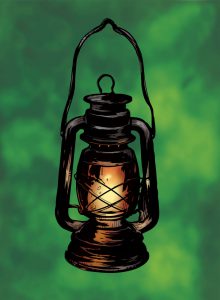
The thick, black lines spread throug my vision, the newer ones were simply grey, and through those, I could still envisage the pail that rested atop the dumbwaiter. Filled with concrete, the thirty-gallon bucket was not easily swayed from its position, but an inner-strength resumed control of me as I pushed it, inch by inch, as it scraped against the bottom of the dumbwaiter. Metal cutting into metal. Finally, I relieved it of its position, and I lifted the dumbwaiter.
A hole- perfectly man-sized- rested beneath. I lifted the dumbwaiter with one arm while the other cradled the lantern. I lowered myself into the narrow hole, encased on all sides by rotted wood and the termite-ridden foundation of my childhood home. Inch by inch I scuttled through that rotted hell, until I was met with a ten-foot drop into a space I could only crawl through. I had not known, ever, there had been a crawlspace beneath my home. Father had never mentioned it. Mother certainly wouldn’t have known of its existence.
I placed the lantern behind me, as the space would not allow me to carry it through. I must have crawled a quarter-mile through stagnant water that smelled and felt centuries old, all the while the inhuman howl of the beast had begun to work its way through my own throat.
The lantern light dimmed, and my vision was failing. The small walls of the crawlspace grew ever more confining the further I ventured into it. The scent of stagnant water gave way, eventually, to a pleasant scent; lavender.
I finally reached the end of that hellscape, where I found a skeletal figure, the flesh wilted from its bones. I needed to creep within inches to see the face of the corpse, to see that it still had eyes, while my own eyes grew darker, weighted. The flesh of my face felt constricted, tightened. I reached a hand up to my face, and poked a tentative finger, lightly, into one eye. The texture was rubbery and thick with the veins of those black webs, which had started beneath the surface, but had now grown. As I trailed a finger down my face, I felt the same rubberized texture of the veined webbing beneath my eyes, on my cheeks. It grew around my mouth, and had taken root in my nostrils.
I was familiar with the symbols of death. I had memorized them well. I would not live to shimmy out of this room.
As the textured veins sprouted upward through my nostrils, I felt them also take root and crawl down my esophagus. They wrapped themselves tightly about my lungs. Still, on my hands and knees I shuffled forward, closer to the skeleton in the corner.
It had decayed severely, other than the eyes. Large, blue, misted eyes stared back and me, and as my vision continued to fail, I reached out and touched the long, pale hair that sprouted from the corpse. The scent of lavender nearly provided me a comfort as I felt the arms of the dead woman- whom I now understood was, indeed, my mother. I gripped her hand in a symbol of unity, as we would both meet our ends here, but before I could grasp the bones of her fingers, I felt the dry crunch of an old sheet of paper, rolled up in her fist. She clutched the paper so tightly, I ripped her hand from her wrist, clawing it away from her, dispersing her digits through the water on the ground.
The lamplight was no longer an option. My throat was full of the veins of that rubberized substance, which had now grown like vines, or tentacles, and reached out of my mouth, and began to wrap around my head, entering my ears, tightening… tightening. I held the paper in defeat for a moment, before I realized that in my pocket, still, were matches. I scrambled quickly to light one. Many had been dampened either by my own refuse, or the stagnant water of the floor. The last match, however, struck.
A pinhole remained of my vision, and as that substance choked me, crushed me, and tore into my brain, I read the first few lines of the page, lines which stole what was left of my breath.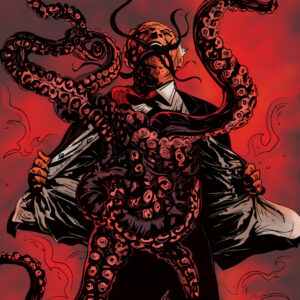
The match went out from lack of oxygen in the crawlspace. I curled my body into the fetal position, and as the howl of that creature became the only sound inside or outside of my mind, the thick veins grew into larger veins, into tentacles.
As they choked me, maddened me, and crushed my face, I lay my head on my mother’s lap, pretending that things were as they had always been when I was a child- that she would reach out and stroke my hair, sing words of comfort to me. But I could imagine her song for no more than a moment.
The howl overwhelmed me as the bones of my skull punctured my brain, and I could smell the lavender no more.
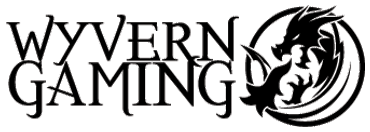
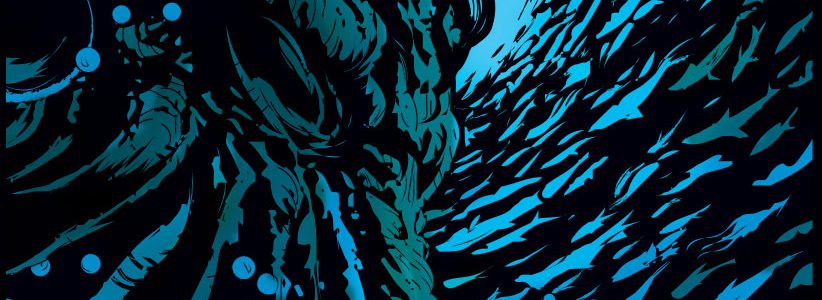
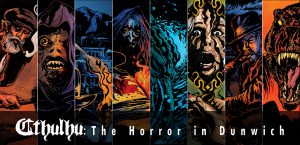


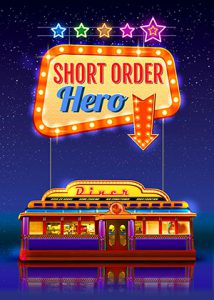 About the game:
About the game: